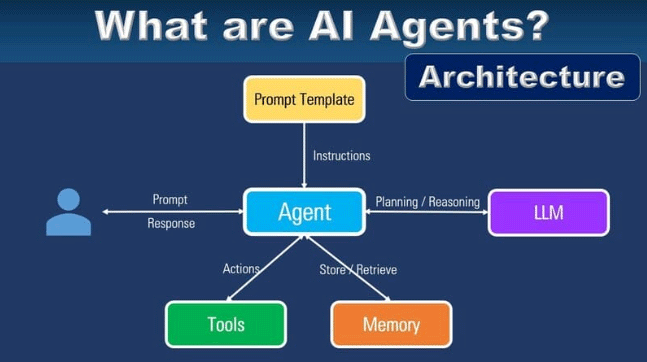|
1. ChatGPT: Your AI Conversation Partner
ChatGPT is an AI tool designed to have conversations with you. Think of it as a very smart chatbot that can answer questions, help with writing, or even brainstorm ideas. It’s like having a virtual assistant that understands language and can respond in a natural, human-like way.
How it works: ChatGPT is trained on a lot of text data, so it learns patterns in language. When you type a question or a request, it predicts the best response based on what it has learned.
What it’s good for: Writing emails, answering general questions, helping with homework, or even creating stories.
Limitations: It doesn’t “know” things in the way humans do—it only predicts responses based on patterns. It also doesn’t have access to real-time information unless connected to the internet.

2. DeepSeek: A Specialized AI for Specific Tasks
DeepSeek is another type of AI, but it’s more focused on specific tasks or industries. While ChatGPT is a general-purpose conversational AI, DeepSeek is designed to dive deeper into particular areas, like healthcare, finance, or customer service.
How it works: DeepSeek is trained on specialized data related to its field. For example, if it’s used in healthcare, it might be trained on medical records, research papers, and patient data.
What it’s good for: Solving complex problems in specific industries, providing expert-level insights, or automating technical tasks.
Limitations: It’s not as versatile as ChatGPT for general conversations, but it excels in its area of expertise.
3. AI Agents: Your Personal AI Helpers
AI agents are a step beyond ChatGPT and DeepSeek. They are AI systems that can perform tasks autonomously, meaning they can take actions on your behalf. For example, an AI agent could book a flight for you, manage your calendar, or even control smart home devices.
How it works: AI agents combine language understanding (like ChatGPT) with the ability to interact with other systems or tools. They can follow instructions, make decisions, and complete tasks without constant input from you.
What it’s good for: Automating repetitive tasks, managing workflows, or acting as a personal assistant.
Limitations: They require clear instructions and may not always understand complex or vague requests.

How These AI Tools Work Together
Imagine you’re planning a vacation:
You could use ChatGPT to brainstorm destinations, write an email to your boss requesting time off, or create a packing list.
You could use DeepSeek to analyze flight prices, recommend the best travel insurance, or provide insights on the best time to visit your chosen destination.
An AI agent could then take over and book your flights, reserve a hotel, and add the trip to your calendar—all without you lifting a finger.
What This Means for You
As an end user, you don’t need to be a tech expert to benefit from these AI tools. Here’s how you can use them:
ChatGPT: Use it for everyday tasks like writing, learning, or getting quick answers.
DeepSeek: Rely on it for expert advice or solutions in specific fields.
AI Agents: Let them handle repetitive or time-consuming tasks so you can focus on what matters most.
The Future of AI for Everyone
These AI tools are becoming more accessible and user-friendly. In the near future, you’ll likely see them integrated into apps, websites, and devices you already use. Whether you’re chatting with a virtual assistant, getting expert advice, or automating tasks, AI is here to make your life easier.
Top 10 AI Agent Projects You Can Build Today
1. Chatbots for Customer Support
2. Game-playing Agents
3. Autonomous Robots
4. Stock Trading Bots
5. Virtual Personal Assistants
6. Content Writing Helper
7. Code Generation Agent
8. Research and Analysis Assistant
9. AgentGPT
10. ChemCrow
Posted on: Feb 16 2025
|